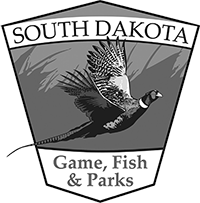Native Bird Nest Protection
The following guidance was provided by the U.S. Fish and Wildlife Service Office of Law Enforcement:
- A nest is protected from destruction or removal (includes cutting down tree) if it is occupied by an egg or nestling listed under the Endangered Species Act, the Bald and Golden Eagle Protection Act, and/or the Migratory Bird Treaty Act.
- If a nest is protected by the Migratory Bird Treaty Act (MBTA) only and it is unoccupied (no eggs or nestlings), the nest is not protected from destruction or removal. The MBTA protects species using a nest, not the nest itself. A violation of the MBTA occurs when there is a “take” of a bird (egg, nestling, juvenile, or adult). For example, the destruction of an unoccupied Red-tailed Hawk nest is not a violation of the MBTA. If a person destroys a Red-tailed Hawk nest containing eggs, the violation of the MBTA is the take of the bird (egg), not the nest.
- Any eagle nest is protected, including the tree and surrounding area (if disturbance of the surrounding area makes the nest tree unsuitable), whether the nest is occupied or unoccupied.
- The federal Endangered Species Act (ESA) protects listed species and their habitat, including nests. Any activity that negatively impacts the feeding, breeding, or sheltering of a listed species is a violation of the ESA.
- A bird species listed by two or more of the federal acts mentioned above is protected by the most restrictive federal act or a more restrictive state law.
- Occupied nests of species that are state threatened or endangered are protected from destruction or removal without prior authorization from the SD Game, Fish and Parks’ Secretary. The exceptions are to alleviate damage to property or protect human health, following receipt of a permit from the SD Game, Fish and Parks’ Secretary.
- Aside from species that are state listed under the South Dakota Endangered Species Law, state law prohibits possessing or destroying bird nests or eggs for species for which taking or killing is at any time or at all times prohibited.
Other considerations: Nests of certain exotic bird species are not protected by state or federal law. Those species are the Rock Pigeon (Columba livia), House Sparrow (Passer domesticus), Eurasian Collared-Dove (Streptopelia decaocto), and European Starling (Sturnus vulgaris).
